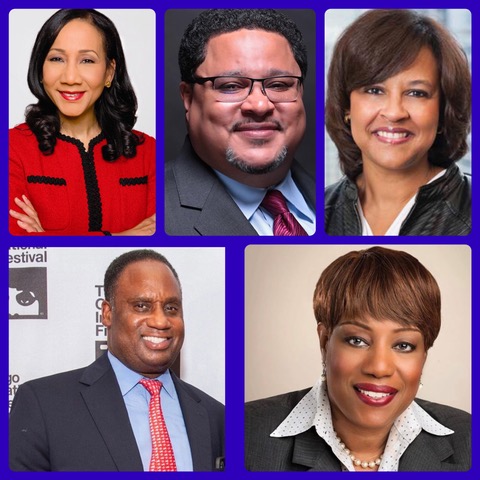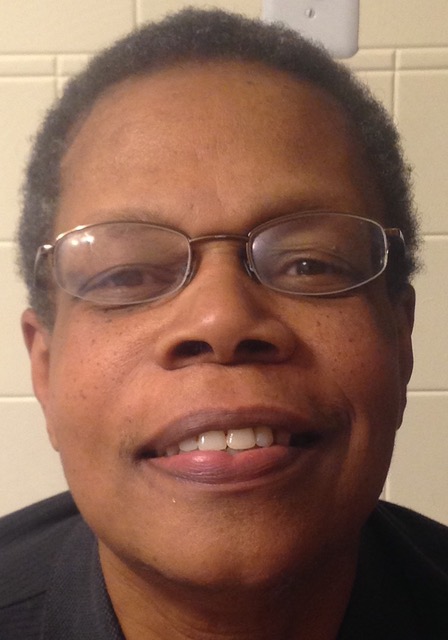West Side Chicago native Glenn Reedus is an award-winning former newspaper reporter, editor, columnist, and executive. His newspaper career began in 1970 when as a high school senior, he wrote his first news story for the Chicago Defender newspaper. He later taught journalism for three years at Michigan State University in E. Lansing, MI. Thirty-seven years later he returned to the Defender as its executive editor.
Reedus left the newspaper business shortly to work as the assistant news editor in the Public Information Office at the University of Northern Iowa (Cedar Falls). He held stints on the Omaha World-Herald’s rewrite desk, followed by a position at the Waterloo (Iowa) Courier newspaper as a business reporter.
Reedus returned to newspapers in 1978 joining the staff of The Oakland Press in Oakland County (Pontiac MI). During his six years there, he covered business, city hall, and district court. Reedus transitioned to the city desk at The Blade newspaper in Toledo (Ohio) where he worked as a general assignment reporter and occasionally wrote a humor column. He returned to The Oakland Press as the night city editor and was part of a team that won an Associated Press award for its coverage of the Crash of Flight 255 from Detroit Metro Airport.
His unquenchable love for journalism returned him home to Chicago in 2007 and he was named executive editor of the Chicago Defender newspaper-one of the nation’s oldest African-American newspapers at the time. In addition to his executive editor duties, Reedus wrote editorials and a weekly column.
Glenn Reedus is now the interim editor and publisher of The Chicago Reporter, an online publication. Glenn is a traditional journalist, and I wanted to chat with him about his insights on today’s world of politics and journalism.

N’DIGO: What is the lay of the land as you see it for politics?
Glenn Reedus: We are in a massive state of flux because, for the first time, we have a mayor who is not in the position to fend all opponents because of a large war chest. With Daley, it was insane to go up against him, and you could not outspend Rahm. Now we have a mayor who is struggling to raise money. There is a considerable discrepancy between the intake and outtake of her finances. Candidates want the latest technology. There used to be a time when people walked the streets for signatures, and now you have to pay. Now it is a profession to challenge the petition. We lost precinct captains, and the incumbent lost a lot of power without the precinct captains. They were the frontline people that knew the problems right down to the street level. They were concerned with little things like the garbage can and the replacement. Precinct captains were a buffer. They were the go-between between the alderman and the community.

How do you view the 1st Congressional District Race?
In a word, it is a mess. One of the things we need to look at is why people are running. Are some running just to get their name out for another office? All of them do not have a chance of winning. No matter how active someone might be, campaigning is grueling and is a different animal. You don’t get a break. There are too many things you have to do as a candidate. You might want to meet and greet, but donors might want to talk about plans. It is very time-consuming, especially if you don’t know what government entails. Many see politics as a popularity contest, thinking they are ready to serve. Every voter should ask what you can do if you get elected. We are talking about a two-year term, and as a rookie, it is scarce that you get to introduce any kind of legislation. You make promises to voters that cannot be fulfilled.
Congresswoman Alexandria Ocasio-Cortez is a perfect example. She got national attention while a candidate, the youngest person to go to Congress, but we have not heard from her from the government vantage point once she took the seat. She is still politicking, with no seniority, you don’t get to do anything, and after the first year in the office, you are back on the streets to raise money rather than talking about business on the hill. Voters see that but don’t mention it.
How do you see view the rich putting up candidates for office?
It’s a double-edged sword. Many rich people are out of touch with the people, and if they don’t put the right folk around them, we are all screwed. But because they have the money, they can bring up issues to focus on. We are in a period where it is extremely tough for people who are not rich to run for office. It is unprecedented Half of the people in Congress are millionaires. We are talking about people with a net worth of a billion dollars running campaigns or being candidates. It used to be candidates who would buy up the air time on the radio. But now, from the day of the announcement, we buy all of the commercial time on TV and Radio, and they shut out the voices of other candidates representing everyday people. Nobody runs just a Facebook campaign. You have to be on the radio; you have to be on television and newspapers. It takes a lot of upfront money.

How do you view today’s journalism?
It’s a mixed bag. You have the old heads who are pretty adamant about journalist standards with a balance. And then you have a cohort of the less experience who mix news with opinion. Everybody wants to be a brand. But previously, you didn’t promote yourself; your work announced you. So now people say, look at me.
Is storytelling journalism?
No. A story is whatever you want it to be. Journalism is telling facts as they occur without opinion.
What are your goals for the Chicago Reporter?
I want to make it as relevant as it has ever been. I want to take a deeper dive into covering race, poverty, and social justice. The technology available allows us to give readers information in a broader sense, more so than we ever had. I want to do it consistently in a way that is acceptable to everybody. We are strictly online.
Please give me some of the stories you are covering.
We have done quite a bit to give Chicago a deeper look at the Hispanic/Latino community. But unfortunately, they are often seen as monolithic, similar to Black people. I am now working on a story that is the most significant sexual harassment discrimination we have seen in decades in the Chicago area.
How do you view race these days?
It’s a mixed bag. We see so many young people in interracial relationships, not just black and white, but black/Hispanic, and others and people seem comfortable. But we are still such a segregated city and a segregated state. I see social progress, but at the same time, we had lost many of the things in our community that made us self-sufficient when we were segregated. We owned the local stores, the cleaners, real estate companies, Black banks. We have lost a lot, but we have gained socially. For example, National Public Radio reported on a segment that suggested we are headed for a civil war. Half of the people said we were headed for a civil war, and January 6 was the beginning of it.
What’s your favorite movie?
Sophisticated Gents with (Bernie Casey, Rosie Grier, Rosalind Cash, and Melvin Van Peebles).
Name three people you would like to interview?
1. Paul Roberson
2. Thurgood Marshall
3. Bayard Rustin





